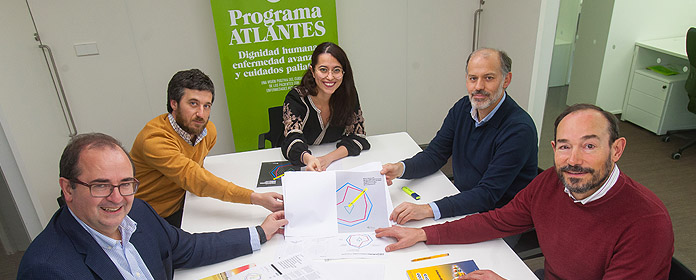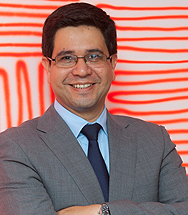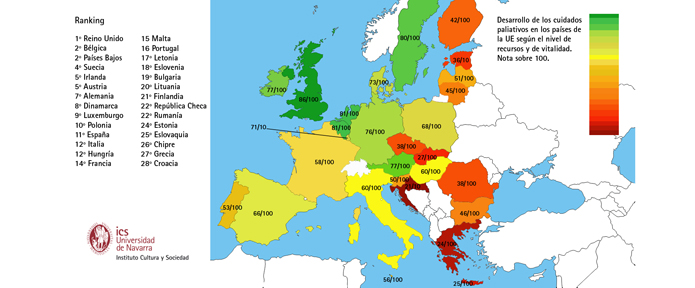228,000 people die each year in Spain in need of palliative care and the country has 260 specialized services.
It is the seventh European nation by issue of services according to the Atlas of Palliative Care in Europe 2019, coordinated by the University of Navarra.

228,000 people die each year in Spain in need of palliative care and the country has a total of 260 specialized palliative care services discipline. These are just some of the data data collected by the Atlas of Palliative Care in Europe 2019coordinated by Carlos Centeno, researcher main of the ATLANTES Program of the Institute for Culture and Society (ICS) and director of Palliative Medicine of the Clínica Universidad de Navarra. It is supported by Banco Santander.
With regard to the 51 European countries analyzed, it is estimated that around 4.5 million people die of suffering as a result of their illness, and 6,388 specialized palliative care services have been identified in the region. Of these, 47% are concentrated in four countries: Germany, the United Kingdom, France and Italy. Forty percent of the continent's nations have half or more of the issue recommended by the association European Association for Palliative Care (EAPC), two per 100,000 inhabitants.
Spain ranks seventh in terms of total number of services. In terms of the ratio per population, it is at the same level as nations with lower GDP per capita such as Romania, Latvia or the Czech Republic and below Portugal, Croatia, Slovenia or Bulgaria. The researchers are confident that in the coming years the issue of services in the State can grow to approach the ratio suggested by the EAPC.
Pediatric palliative care programs in 38 countriesThe authors of the Atlas remind us that it is not only the adult population that requires palliative care: 140,000 European children -more than 1,300 in Spain- die each year in need of palliative care. Thirty-eight countries have pediatric palliative programs. Spain is among them: it has eight home-based and two hospital-based programs.
In this third edition, the Atlas also explores for the first time aspects such as the integration of palliative care in primary health care and other Departments, the volunteer activities and the work of scientific societies for the development of this discipline.
With respect to the first question, 12 countries have systems for identifying patients in need of palliative care in primary care, although most provide this care in the last month of life. Likewise, 10 countries have early integration of this service at department in oncology; 8 in cardiology; and 14 in nursing homes.
Regarding the vitality of the profession, the researcher team highlights that 41 countries have a national palliative care association ; in Spain there is the Spanish Society of Palliative Care (SECPAL), founded in 1990. Likewise, in eight countries there are more than a thousand registered volunteers, who support the work of healthcare professionals.
To make further progress, the authors stress the importance of training. They point out that 13 countries teach palliative care to more than 50% of their medical students and nine countries teach palliative care to more than 50% of their nursing students. In the case of Spain, 53% of medical Schools and 61% of nursing discipline.
The coordination of the Atlas points out the need to implement in Spain a process of specialization in Palliative Medicine for physicians. This is already recognized as specialization program, subspecialty or area of skill specific in all neighboring nations (Portugal, France and Italy) and in the vast majority of Western Europe.



